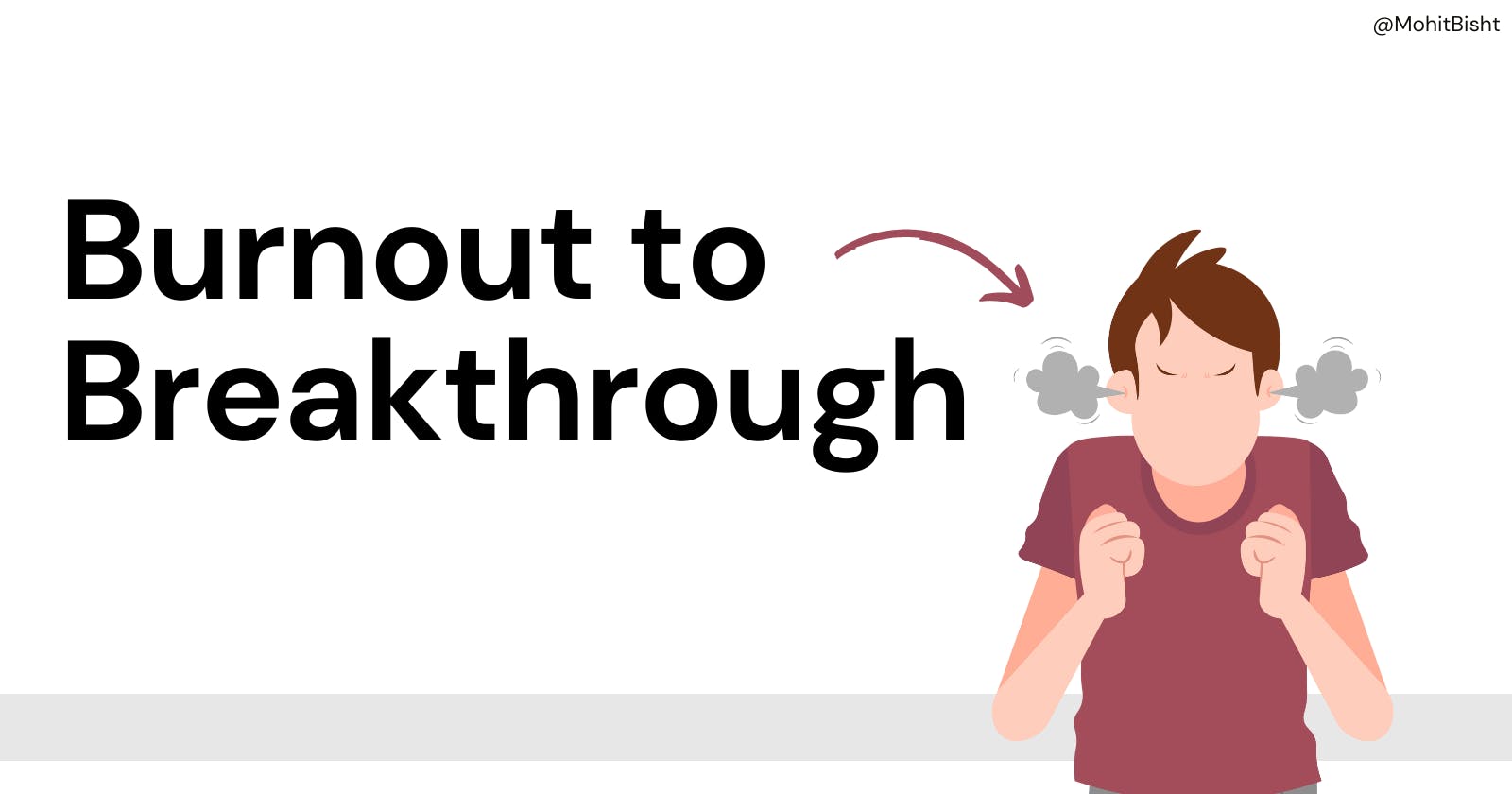Burnout to Breakthrough Finding My Passion in Web Development and Cloud Technologies
A Freshman's Journey in the Tech Industry
As a freshman student studying computer science, I was eager to explore all the different aspects of the tech industry. I started by learning various programming languages, trying to find my niche. However, after a few weeks, I found myself feeling overwhelmed and burnt out.
I watched my friends diving into mobile development, and I thought that maybe that was the path I should take too. But I soon realized that just because they were passionate about it, didn't mean it was the right fit for me.
After some reflection, I decided to explore web development and cloud technologies. This decision changed everything for me.

Web development appealed to me because of its versatility and ability to create interactive and engaging user experiences. On the other hand, cloud technologies intrigued me because of their scalability and flexibility.
I started by taking online courses in web development, and I was hooked from the start. I loved being able to create something tangible from scratch and seeing my ideas come to life. Learning about HTML, CSS, and JavaScript gave me a foundation to build upon, and I was excited to keep learning more.
Cloud technologies were a bit more intimidating for me, but I knew it was worth exploring. I began by researching cloud platforms and services and learning about their benefits and use cases. I then started to experiment with cloud technologies by deploying web applications on platforms like AWS and Google Cloud.
As I continued to learn, I found myself feeling more and more fulfilled. The burnout I had felt before was slowly dissipating, and I was excited to wake up every day and continue learning and building.
Looking back, I realized that my burnout stemmed from my lack of direction and focus. I was trying to do everything at once and wasn't taking the time to evaluate what I truly enjoyed.
Here are some key takeaways from my experience:
It's okay to not know what you want to do at first. It takes time to find your passion.
Don't compare yourself to others. Just because your friends are doing something, doesn't mean it's the right fit for you.
Experiment and explore different areas until you find what you enjoy.
Once you find your passion, keep learning and building. It's the best way to stay motivated and engaged.
Recognizing Burnout
Recognizing the signs of burnout is the first step in the process of recovering from it. As a student and fresher in coding, burnout can manifest in many ways, such as feeling overwhelmed, anxious, and uninspired. You may find yourself losing interest in coding or feeling like you're not making progress. Once you recognize these signs, you can take steps to prevent burnout from getting worse.
Taking Breaks

The next step in recovering from burnout is taking breaks. As a student and fresher in coding, it can be tempting to spend all your time coding and trying to learn as much as possible. However, it's important to take breaks and recharge your batteries. Go for a walk, meditate, or do something that you enjoy. Taking breaks can help you feel more refreshed and focused when you come back to coding.
Time Management

One of the things that can contribute to burnout is poor time management. As a student and fresher in coding, you may feel like there's not enough time to learn everything you need to. However, learning time management can help you prioritize your tasks and make the most of your time. Use tools like Pomodoro timers or productivity apps to help you stay on track.
Setting realistic goals
I learned that setting goals that are achievable within a reasonable amount of time is crucial. This helped me break down my tasks into smaller, manageable steps that kept me motivated and focused. Setting realistic goals can also help you avoid the trap of perfectionism. When you set unattainable goals, you may feel like you need to do everything perfectly to achieve them. This can cause you to spend too much time on one task, leading to burnout and a lack of progress overall. I learned that setting goals that are achievable within a reasonable amount of time is crucial. This helped me break down my tasks into smaller, manageable steps that kept me motivated and focused.
I've learned to be specific about what I want to achieve. Instead of setting a goal like "learn web development," I set specific goals like "complete a beginner-level course in HTML and CSS in the next two weeks." This helps me stay focused and motivated because I have a clear idea of what I need to accomplish.
Breaking down my goals into smaller, manageable steps has also been crucial. For example, instead of trying to complete an entire course in one sitting, I break it down into smaller sections that I can complete in one or two hours. This makes the task feel less overwhelming and helps me stay on track. This helps me stay motivated and engaged and prevents burnout.
Prioritizing tasks
I learned to prioritize my tasks based on their importance. This helped me stay organized and focused, preventing me from feeling overwhelmed. By prioritizing your tasks, you can focus on the most important and urgent tasks first. This helps you avoid feeling overwhelmed and makes it easier to make progress toward your goals.
One way to prioritize tasks is to use a to-do list. By making a list of all the tasks you need to complete, you can prioritize them based on their level of importance and urgency. You can also break down larger tasks into smaller, more manageable steps to make them easier to tackle.
In addition to helping you manage your workload, prioritizing tasks can also help you avoid procrastination. When you have a clear idea of what needs to be done and when it's easier to stay motivated and avoid putting off tasks until the last minute.
Overall, prioritizing tasks is a key strategy for preventing burnout. By focusing on the most important and urgent tasks first, using tools like the Eisenhower matrix and to-do lists, and breaking down larger tasks into smaller steps, you can manage your workload effectively and stay motivated toward your goals.
Practicing self-care
I realized that taking care of myself is essential for preventing burnout. I make sure to get enough sleep, eat a healthy diet, and take breaks throughout the day to rest and recharge. I also practice relaxation techniques like meditation or yoga to manage stress.
Here are some ways to practice self-care:
Exercise regularly: Exercise is a great way to reduce stress and improve your overall health. Even just a short walk or some stretching can make a big difference in how you feel.
Get enough sleep: Sleep is crucial for your physical and mental well-being. Try to get at least 7-8 hours of sleep per night, and establish a consistent sleep routine.
Eat a balanced diet: Eating a balanced diet can help you feel better physically and mentally. Aim for a variety of fruits, vegetables, whole grains, etc.
Take breaks: Taking breaks throughout the day can help you stay refreshed and focused. Try taking a short walk, practicing deep breathing, or doing something else that helps you relax.
Practice mindfulness: Mindfulness is all about being present at the moment and focusing on your thoughts and feelings. Meditation, deep breathing exercises, and yoga are all great ways to practice mindfulness.
Connect with others: Spending time with friends and family can be a great way to reduce stress and improve your mood. Try to make time for social activities that you enjoy.
Conclusion
Recovering from burnout takes time and self-reflection. It's important to take a step back and evaluate what truly interests and motivates you. For me, web development and cloud technologies were the right fit, and I'm excited to continue exploring and building in these areas. Remember, it's okay to take detours along the way as long as you keep moving forward toward what truly inspires you.
